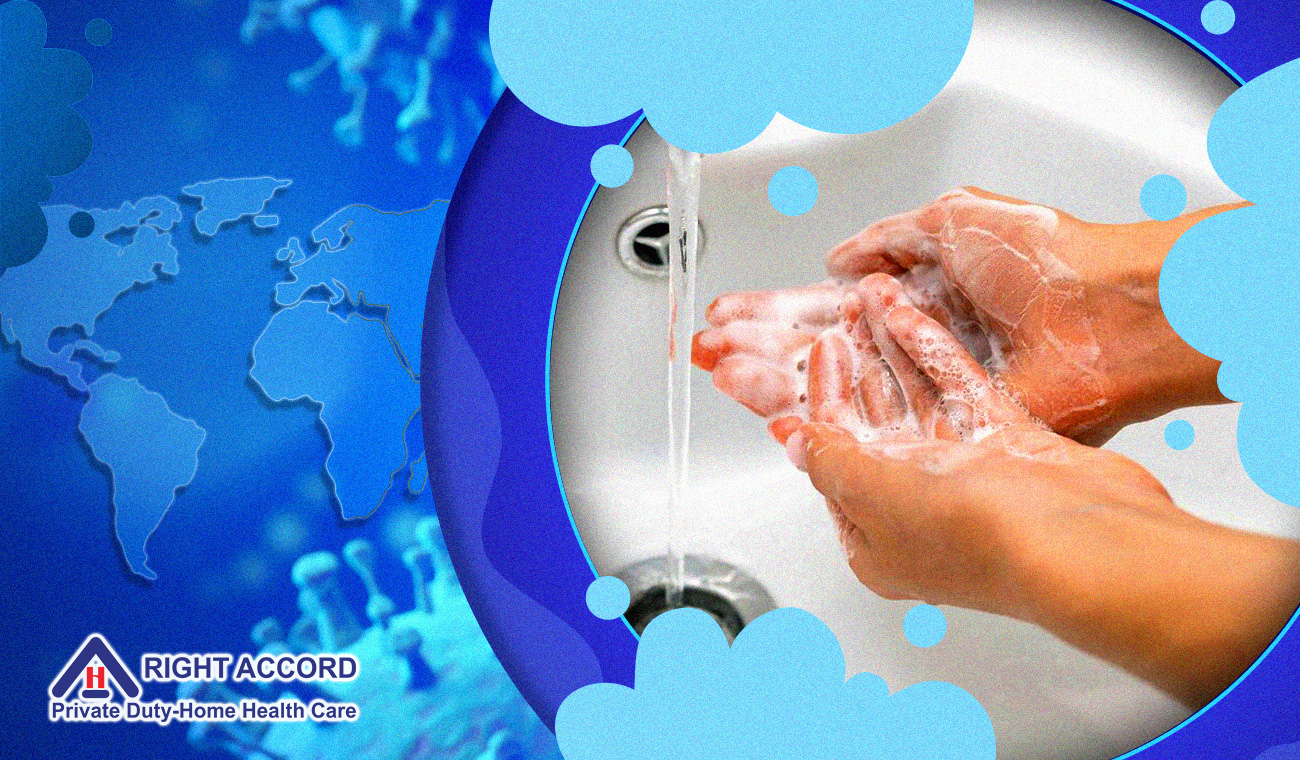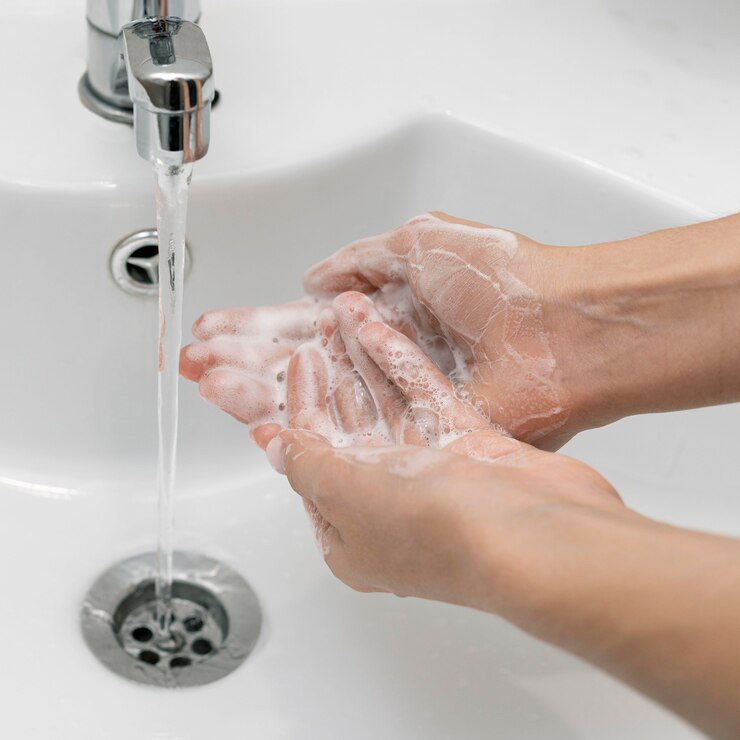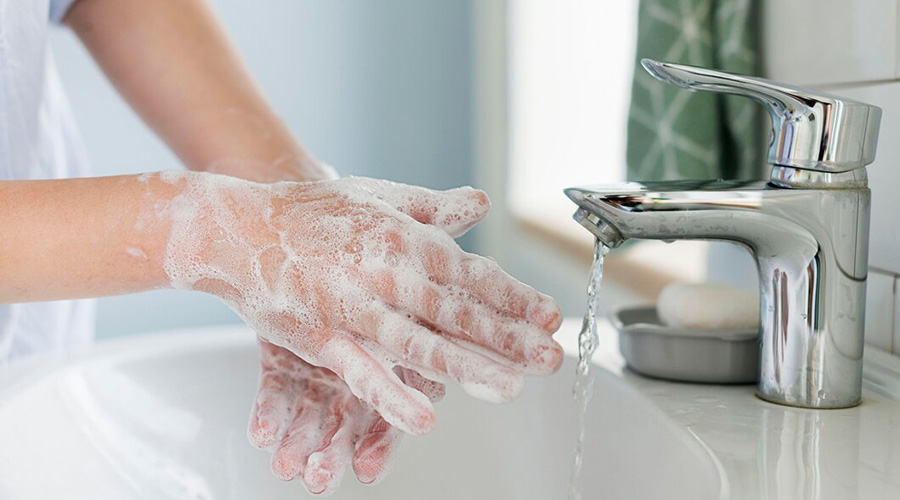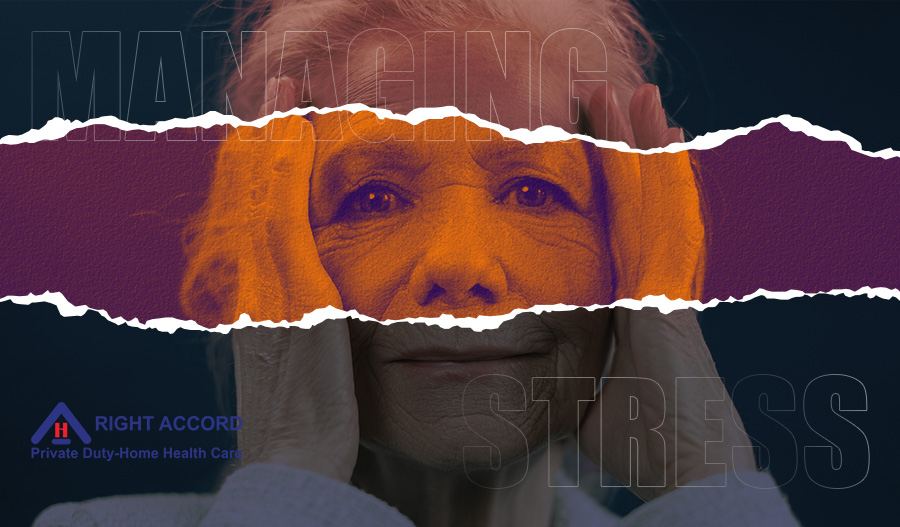· 4 min read
The Critical Role of Handwashing on Seniors This Flu Season
The role of handwashing in preventing infections and promoting overall well-being cannot be overstated. Deep dive into this simple yet powerful practice.

By: Rosemarie Tamunday Casanova — RN, BSN, MHA
As the flu season unfolds, communities worldwide brace themselves for the annual onslaught of influenza viruses. Amidst the flurry of vaccinations and health advisories, there’s a simple yet potent weapon in our hands: handwashing.
While its benefits are universally acknowledged, the emphasis on this practice intensifies during flu season, especially when considering the vulnerable demographic of seniors. In this article, we’ll delve deep into the significance of handwashing and its unparalleled importance in shielding our elderly from potentially debilitating infections.
The Foundation of Handwashing

To understand the gravity of handwashing, it’s essential to first appreciate its foundational role in hygiene and public health. Handwashing, a seemingly mundane act, is a formidable barrier against a myriad of pathogens.
By cleansing our hands, we disrupt the transmission cycle of harmful microorganisms, preventing their spread and safeguarding both ourselves and those around us.
Historically, handwashing has been pivotal in controlling infectious diseases. From cholera outbreaks in the 19th century to modern-day pandemics, the efficacy of hand hygiene remains undiminished. It’s a testament to the timeless relevance and potency of this practice.
The Vulnerability of Seniors
While infections can affect individuals across all age groups, seniors, particularly those above 65, face heightened risks and challenges. Several factors contribute to this vulnerability:

Diminished Immune Response
Age-related changes in the immune system make seniors more susceptible to infections. The body’s ability to mount a robust defense against pathogens diminishes with age, rendering seniors more vulnerable to illnesses.
Pre-existing Health Conditions
Chronic ailments, such as diabetes, cardiovascular diseases, and respiratory disorders, are more prevalent among the elderly. These conditions not only compromise the body’s defense mechanisms but also exacerbate the severity of infections.
Frailty and Reduced Mobility
Physical frailty, often associated with aging, can limit a senior’s ability to maintain optimal hygiene. Reduced mobility, dexterity issues, or cognitive impairments can hinder regular handwashing practices, amplifying their exposure to pathogens.
Handwashing: A Protective Shield for Seniors
Given the unique challenges faced by seniors, the role of handwashing in their protection becomes even more pronounced:
Interrupting Transmission Chains
Infections, including the flu, primarily spread through direct contact or by touching contaminated surfaces. Handwashing disrupts these transmission chains by removing pathogens from the hands, thereby reducing the risk of infections.
Mitigating Complications
For seniors, the repercussions of infections can be severe, leading to hospitalizations, complications, and even mortality. By adhering to proper hand hygiene practices, the incidence of infections can be curtailed, subsequently minimizing the associated health risks.
Holistic Health Benefits
Beyond infection prevention, handwashing fosters overall health and well-being. It mitigates the risk of secondary infections, promotes skin health, and reinforces a broader culture of hygiene, which is especially crucial in communal settings like senior care facilities.

Strategies for Effective Handwashing
To harness the full potential of handwashing, it’s imperative to ensure that the practice is both consistent and thorough. Here are some strategies to enhance handwashing efficacy:
Educate and Advocate
Raise awareness about the importance of handwashing among seniors, caregivers, and healthcare professionals. Emphasize the correct techniques and debunk common misconceptions.
Accessible Facilities
Ensure that handwashing facilities are readily accessible to seniors, especially in communal areas, healthcare settings, and residential facilities. Consider ergonomic designs, non-slip surfaces, and adequate lighting to cater to their specific needs. Promote Compliance: Encourage regular handwashing through reminders, signage, and interactive sessions. Leverage community leaders, peer influencers, and healthcare providers to champion the cause and instill a sense of collective responsibility.
Incorporate Technology
Explore innovative solutions, such as sensor-based faucets, touch-free dispensers, and interactive training modules, to enhance handwashing practices and make them more engaging for seniors.

Conclusion
Handwashing, a cornerstone of public health, assumes heightened significance during the flu season, particularly for vulnerable populations like seniors. Its role in preventing infections, reducing complications, and promoting overall well-being cannot be overstated.
As communities unite to combat the annual flu onslaught, let’s rally behind this simple yet powerful practice, ensuring that our seniors are shielded, protected, and empowered to lead healthy, fulfilling lives. Through collective efforts, advocacy, and unwavering commitment, we can harness the transformative potential of handwashing, creating safer, healthier environments for all.



